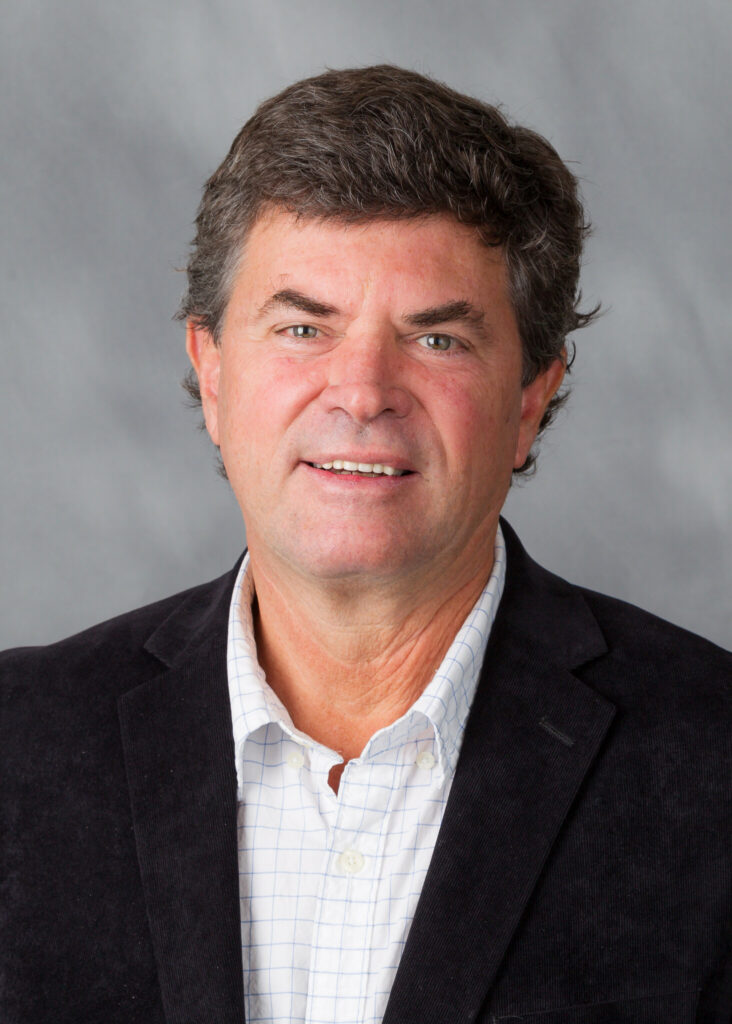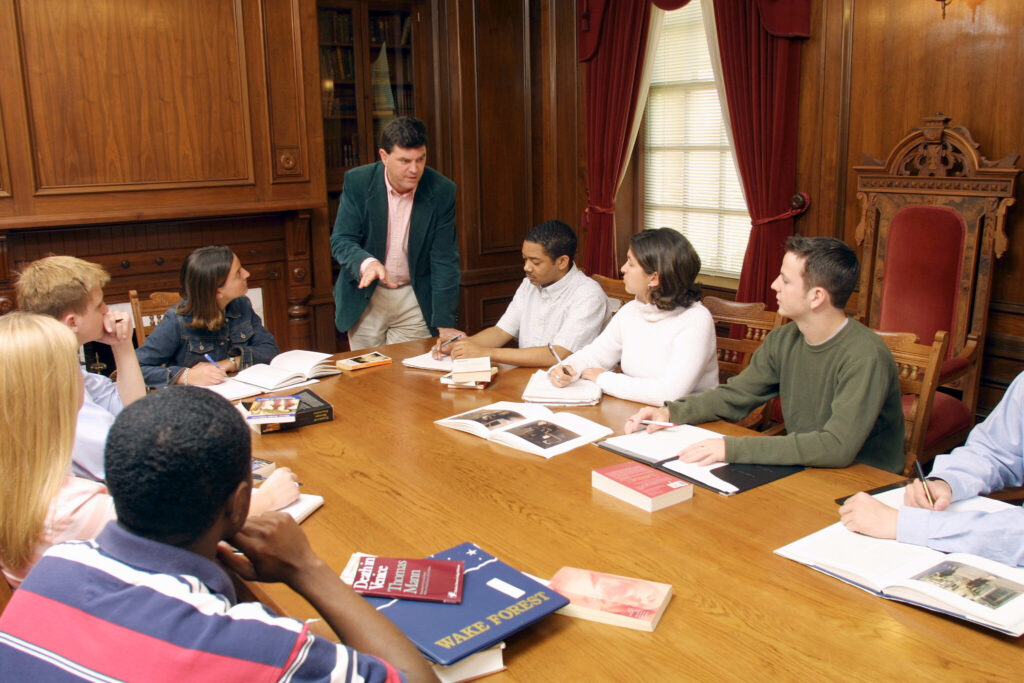Teacher-Scholar Legacies: Barry Maine

By Jessica Richard, Associate Professor of English
When I was named chair of the English Department in 2016, I met with every past chair who was still on the faculty for insight and advice. I was especially eager to talk with Barry Maine, who chaired the department for nearly a decade right after being awarded tenure, because I knew he had been, and continued to be, deeply respected by his colleagues. Indeed, Barry Maine has been universally understood in the English department and across the College for 44 years as one of the most collegial of faculty members. Who doesn’t like Barry? For the 23 years I have known him, Barry has been both profoundly appreciated by his colleagues and beloved by students.
Not only did he chair the department for an unusually long term early in his career, Barry did so at a time of significant transition at Wake Forest. As his longtime and recently retired colleague Anne Boyle explains, “Barry Maine has proven, over and over again, not only his love and passionate devotion to literature, but also to the Wake Forest community and, especially, his students and colleagues in English. He was made chair immediately after his promotion to Associate Professor because it was known that no one else in the department had the vision and navigational skills to lead the department into the 21st century. Gone were the days when college professors could pursue their teaching without worrying about the ever-increasing demands of the administration. No, we were in for the Plan for the Class of 2000! Despite deep departmental fears and stormy battles, Barry navigated the troubled waters and led us to understand how we might become a stronger department if we thought creatively about the laptop initiative, the first-year seminars, and increasing enrollments. Always caring deeply for students and colleagues, he made certain our department was at the very center of the changing university. He gave us voice, encouraged us, and always advocated for us. Barry loves his family and his students, but it was always clear he cherished and fought for the English Department.”
Beyond the English Department, Barry served Wake Forest in a range of significant endeavors. He worked for a decade as the Judicial Liaison for the Honor and Ethics Council and also served on the Graduate School Honor and Ethics Council, helping students uphold the values of honest inquiry so crucial to the liberal arts. He chaired or served on an almost countless number of College and University committees over 44 years. In fact, he has provided more service to the department, College, and University than any other current member of the English Department.

It is telling that his most significant College service was student-oriented. For 16 years, he directed the Open Curriculum and Interdisciplinary Majors programs that allowed motivated students to create their own majors tailored to their academic interests. And for more than 20 years, he directed the Interdisciplinary Honors Program, facilitating collaborative teaching among faculty from diverse disciplines and offering students unique and much-treasured learning opportunities. His long-standing commitment to helping students and faculty study across disciplinary boundaries was ahead of its time and exemplifies the ideals of liberal arts learning.
Not only did Barry Maine foster exciting teaching and learning opportunities for his colleagues and their students, but he has also been a consistently outstanding and much beloved classroom teacher. His academic specialty — American fiction of the first half of the 20th century — is a key component of any department of English and American (and global) literature, and his presence in the department increased the popularity of the field. In the early days of his career, before caps were placed on the number of students in individual sections and when a lecture room such as Tribble C216 had rows of fixed seats, his course on the American novel would sometimes attract as many as 60 students; Professor Maine never liked to turn students away.
He taught widely and with interdisciplinary breadth, including introducing some of the first courses dealing with film at Wake Forest. His courses on American Art and Literature, team-taught with Professor David Lubin in the Art Department and meeting at Reynolda House Museum of American Art, were especially popular and offered students the unique opportunity to examine American aesthetic expression across media. It is impossible to count the number of undergraduate and master’s theses for which Professor Maine has served as either director or reader, and his office door has always been open to his students, who consult him regularly.
The outstanding nature of Barry’s undergraduate teaching has been recognized by the two highest teaching awards the University can offer: he received the Reid Doyle prize for Excellence in Teaching as a junior faculty member and, 22 years later, the Reinhardt Award for Distinguished Teaching in 2009. There are only a handful of people in Wake Forest’s history who have been awarded both the Reid Doyle and the Reinhardt, and these recognitions speak to the consistency and depth of Professor Maine’s commitment to the art and craft of pedagogy.
Barry Maine’s scholarship grew out of and informed his teaching. He published scholarly articles on literature and film and literature and paintings throughout his long career, most recently articles on the painter John Singer Sargeant and the writers Henry James, Edith Wharton, and Henry Adams. He will continue his active engagement as a teacher-scholar after his retirement. He is currently working on several academic articles for publication in academic journals and intends to teach courses in the Lifelong Learning Program, which will allow him to share his scholarly expertise with the community.
As I reflect on Barry Maine’s career as a teacher-scholar and member of the Wake Forest community, I admire perhaps most his sustained enthusiasm for his work as a professor. He resisted cynicism over decades of institutional change, continuing to believe in and contribute to the mission of the university. He weathered the challenges of COVID, showing up to teach in person as soon as he was allowed to because in-person teaching is at the heart of his professional purpose. As professors travel through their careers, the gulf between them and their students can sometimes become unbridgeable as the age and experience gap between them widens. But as students changed over the years, their interests shifting, their reading and writing habits and skills reshaped by technology, Barry continued to be a popular, effective, engaged, and beloved teacher. His courses were as fully enrolled in 2025 as they were in 1981, when he was hired, because he has continued to connect with students over the twentieth century’s great works of American literature, art, and film. In this, as in so much of his career, Barry Maine is a model professor his colleagues can hope to emulate.

